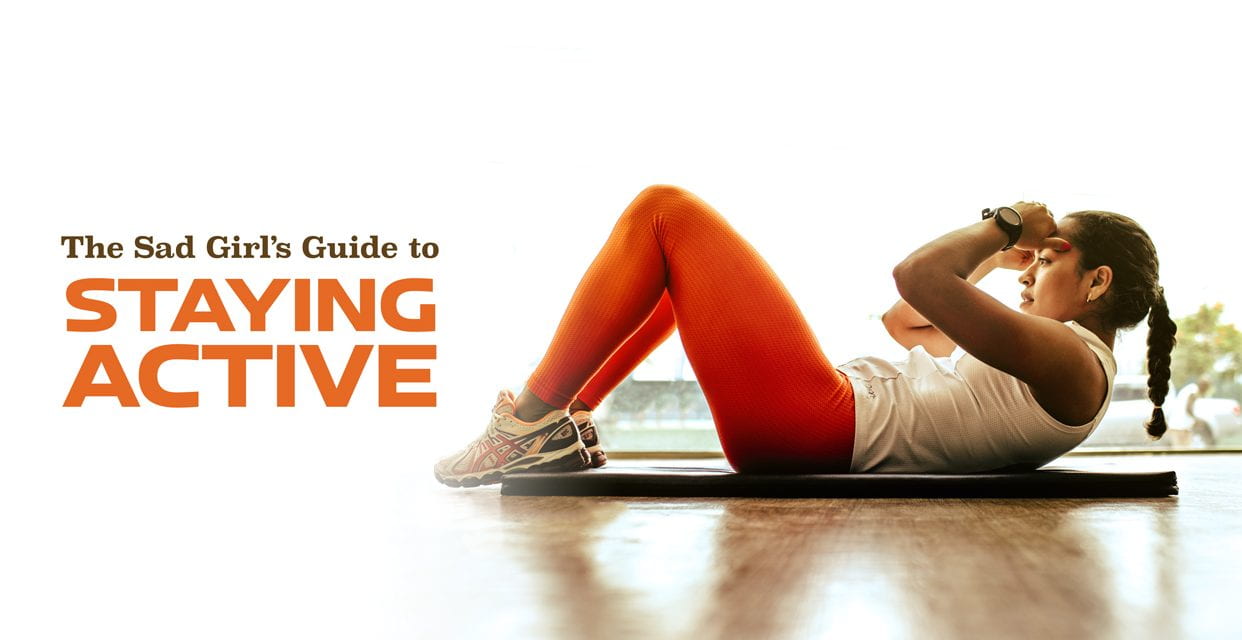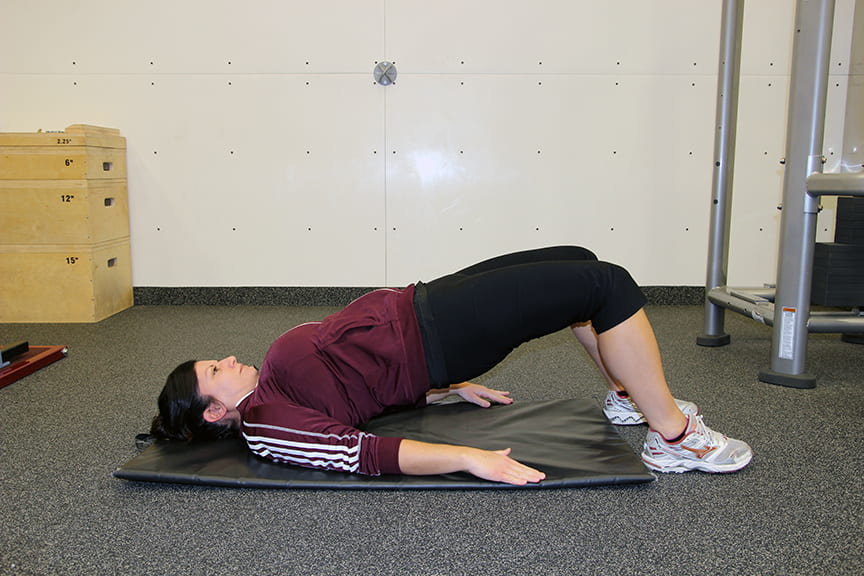Sure, we all know staying physically active is good for our mental health, but what is one to do when you can barely manage to get out of bed, let alone hit the gym daily? Let’s be realistic; the gym routines on Instagram are very much suited to the neurotypical – what’s a gal/guy/they to do when it seems like no program is being touted to those whose mental health needs extend beyond “just get up and move.” I’m here to share, from personal experience, ways to stay moving and reap those mental health benefits when depression rears its ugly head. Remember, this list is non-exhaustive; there are no “one-size fits” all fitness solutions. Lastly, know that you are not alone and there are resources available to help you when you need them.
Re-vamp your definition of exercise
Maybe the thought of getting up and going for a run or hitting up a public gym fills you with dread, or you feel like you can’t muster the energy to change into gym gear. Movement exists in many forms, for example, deep cleaning your room, dancing, walking the dog, stretching, jumping, swimming, hiking, and so on and on. Start simple with some stretches in bed or in front of the TV – listen to your body’s cues. You do not have to do a leg day workout just because your structured plan says to. Let this be your permission to YouTube an at-home Barre workout just because you felt like it!
Start early
If you’re an overthinker like me, planning to get a workout in later on can become a slippery slope of excuses masked by best intentions. Sure, you’ll probably finally get around to cleaning out your fridge or filing your taxes in place of actually working out, but soon enough, bedtime rolls around, and you’ve missed the window. I’ve found that working out first thing in the morning (before realizing what’s happened) was the best way to stay consistent. Then you’re done and can tick an accomplishment off your list right away!
Make it feel like a party
Put on your favourite hype playlist at maximum volume, your cutest gym outfit, and strut with as much attitude as you can muster on the treadmill. To be brutally honest, with this type of workout, I usually end up experiencing nearly every emotion on the spectrum and I keep on rolling until those good mood endorphins hit (after the initial sobbing and rage fire). Finish with a dance party and don’t forget to stay hydrated with your emotional support water bottle.
Give yourself some grace
It is no secret that we are our own worst critics. If you’ve fallen out of routine and are beating yourself up for it, try putting yourself in a friend’s shoes. What words would you use to encourage a friend if they were not getting a workout in every day because they were having a hard time? Maybe you are doing your best just going through the motions of the day because your extra energy is being used to battle depression or anxiety. Reallocating energy resources to your mental health is not failure; it is survival. I’ve found that taking a moment to step back and speak to myself the way I’d speak to a friend has allowed me to be gentler with my self-criticisms and allowed me to adjust my physical activity goals to an achievable level when those emotional lows hit hard.
If you are struggling with your mental health, there are resources available to help, including services right on campus for MacEwan University students.
- https://www.macewan.ca/campus-life/mental-health/
- https://www.macewan.ca/safe-at-macewan/mental-health-counselling/
- https://edmonton.cmha.ca/
- 24 Hr Crisis Line: 780-482-HELP (4357)
Visit our website for information on ways we can help you be more comfortable in the gym, including our Fit Buddy program, training consultations, virtual coaching, and individual and group personal training. Sign-up to receive our monthly newsletter for news, announcements, program information, swim tips, and exercise demos.
by Megan Denholm
Megan is a Bachelor of Kinesiology graduate from the University of Alberta. She is a CSEP-CPT certified Exercise Specialist and Programmer with the MacEwan University Sport and Wellness fitness team.



